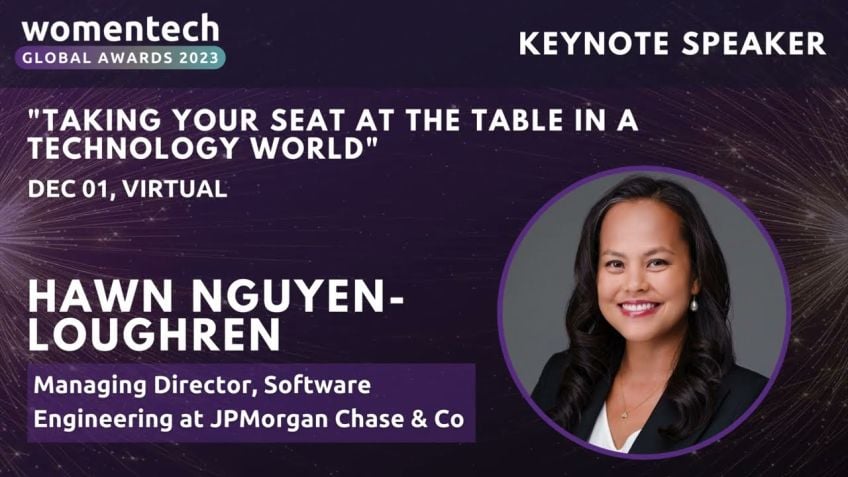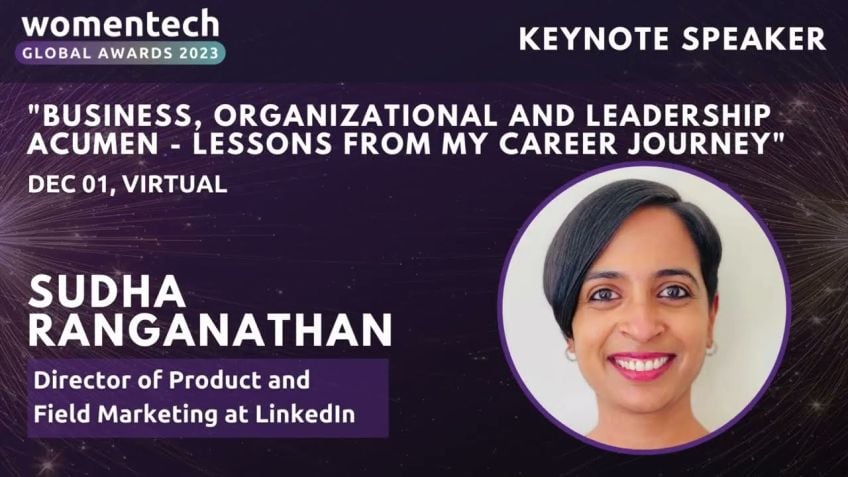Sher Downing From Sweatpants to CEO: How to rethink YOU for the future
From Sweatpants to CEO: Pivoting in a Pandemic World
In the past year, the world has gone through a significant shift. The way we carry out our daily activities and especially our work habits have drastically changed. This article aims to provide you with crucial steps towards transitioning "From Sweatpants to CEO".
Reflections on the Past Year
Undoubtedly, COVID-19 has brought numerous lessons along with it. As we navigated through the challenges, we learned that:
- Remote work is feasible: Despite traditional beliefs that many jobs couldn’t be done remotely, it became evident that numerous roles could be fulfilled from home.
- Technology is essential: The ability to use technology isn't only beneficial for work, but also for day-to-day activities such as grocery shopping, healthcare, and more.
- Career expectations have changed: Many people appreciate the flexibility remote work offers. This has led to increasing aspirations for a career that matches their preferred lifestyles.
With these important learnings, it’s time to start contemplating the future.
Planning for the Future
With the shift in work culture brought about by the pandemic, it’s time to think about what's next. To prepare for these changes, consider the following:
- Clarify Your Dream Job: Identify what type of role you want to have, whether it's this year, next year, or even in the next five years. Understand what you want from your career and set goals accordingly.
- Take Stock: Evaluate your credentials, skills, and experiences. Consider any gaps you might have and plan how to fill them. This also applies to where you want to work geographically: remote, in-office, or relocated.
- Expand Skill Set: Understand that continuous learning is key. Seek ways to refine your technology skills, join online courses, or hire a coach or mentor to help in areas you lack.
Choosing Your Next Role
Whether you're considering starting your own business or making a lateral move in your current organization, it's crucial to pick a role that suits you. Understand your preferences and aspirations. The key is honesty—know what you like and don't like, then make decisions accordingly.
Your Personal Brand
Now that you have clarity on your path, it's time to market yourself. Understand how social media works, learn how to manage client lists with tools like MailChimp, and build your personal brand. Investing time in enhancing your presentation and speaking skills will also be beneficial, as it can help you pitch yourself more effectively.
Final Thoughts
While this may seem like a lot, remember that slow progress is still progress. Plan your time in manageable chunks such as three months, then assess what you've done and what needs to be done. Have fun along the way, seek feedback from others, and continue to grow.
Take the first step towards that CEO position or a fulfilling career. Plan, progress, and remember it's never too late to start something new.
Anyone interested in further details or has any questions can reach out here. Now, get ready to transition from sweatpants to CEO!
Video Transcription
Uh I wanna thank you for coming this morning. Um My presentation is titled from Sweatpants to CEO and I thought this picture was appropriate for the last, I think it's a time where we're all starting to rethink what it is that we're going to be doing, going forward.So we're gonna talk a little bit today about what occurred in the last year. What's going to happen going forward the very last slide. Um You'll have five questions that you can answer after the session over with and really start to think about. So up until then don't worry too much about if you're trying to take notes, really want you to think through things and just really kind of start to mull things over. Once you have those questions, you can write things out in a little more uh detail. And again, you can reach out to me and we'll get the slides to you. So we learned three main things last year from the pandemic. Um We learned that skills are valued in the workforce in ways we hadn't even imagined. So all of us have heard throughout our careers that there are jobs that you can't do from home. You can't work remotely, you must be in the office. And last year we found out that there are a good can be done remotely. Um, no longer can companies use that as their excuse to have people avoid working from home. It's really an opportunity to do things in a new and different way and many companies are starting to think through that way. Others, not so much.
So, uh, you know, that happens then when you want to decide, are you staying with that company, are you staying with that organization? Maybe you're thinking it's time to leave or maybe you're just wanting to do something different. Uh The second thing was it's essential to be able to use technology, not just for your job, but we found out that we needed to have our food sources. Um, all of our, you know, clothing, toiletries, everything had to be delivered home. Um, even medical care was available viewing over. So it's really an opportunity to understand where your technology level was and where it needs to be. And the third thing we we learned about was many decided they want more out of a career. Um, like they enjoy what they do, but it really caused them to think about. I enjoy no longer commuting. I enjoy being home with, with my kids and being have, having a flexible schedule. Um I really decided there's something else that I wanna be doing more. So So what's next for you? Are you thinking about, it's time for something new. Are you starting to weigh out? You really liked working remotely? Maybe for some of you, you've even started to think about uh starting your own business. Uh People are looking at creating new apps, maybe they're looking at designing new uh images, lots of different things are out there. And so it's time to start thinking through those things, but it's also time to start planning for those. So let's think about your dreams and aspirations.
And again, when you get the slides, you can go through and write these things out. Don't worry about the details of it. Just think about, you know, what is it? What's your dream job? Where would you uh what are the things that you would like to do with it? That's, that's your starting point. That's your goal, knowing what you want to achieve whether that's this year, next year, five years. But that's ultimately your main goal. That's what you want to do.
And I'll give you an example. I have a client who spent five years working towards getting the right role on a beach in an oceanfront side area. Um She's always lived in the central part of the United States. She has worked overseas as well, but she's never been able to live near the ocean and she's never been able to work in a particular role that she's always coveted. So we prepared her to get to that point so that she could do that. Um, so the second thing we're gonna talk about is taking stock. You really wanna look at whether it's your linkedin page, your resume, but look through, review your credentials, review notifications, all the things that you've earned. And then, uh, you know, think about how many of those things you got laps. Maybe you haven't recertified or maybe, uh, software has gone up a couple, uh, you know, more releases and you haven't kept up with it. Those are the kinds of things that start to become the gap when you're applying for roles or when you're wanting to take on a new project. Think about your location. Uh, do you want to commute? Do you not want to commute? Do you want to be in an office? Do you wanna be home remote? Do you want to relocate to a geographic location? All of these things are really important to where it is you're going and what you wanna do and how you plan for it.
And if you're aligned right now, and you're saying, hey, I've done all this, I'm right where I wanna be, things are going great. I just know that I wanna move up the career ladder in my organization. Terrific. Congratulations. You figured things out and your goal is to move upward and you're gonna do great with that and you've executed towards that, if you're not feeling that way and you're feeling like, uh I've kind of got an off course, this isn't really what I wanna be doing. Um Maybe you're thinking, you know, I started a degree and I never finished it. I've often thought about going back. It's ok. There's still time to do these things. I always recommend taking the world in three month chunks. So think of it by a quarter, just like if you were planning for a business, what are you gonna get done in the next three months and then assess at the end what you did, what needs to roll over, what are other things that you could be doing but use that so that you're always feeling like you're making progress like you're moving forward and you're always taking stock of where you're at, what you're doing and how you're going to plan to progress forward because some things are going to cost money like uh redoing credentials or doing training other things, you know, you can plan for because to a downtime, uh oftentimes school teachers will do a lot of this kind of work over the summer because they're not teaching.
So know what fits your schedule and know what fits your budget and how that's gonna happen. But plan for it every three months, you should be looking at, what are you doing next? Where are you going to? So the last question is, where are you today? And by today, I mean, pick your dream date what's the date that you're gonna say from this point forward? I'm gonna start working on my dream and making it reality. That could be today. That could be this Saturday. That could be a year from now. But I recommend you get a piece of paper, you get a journal and you write down. Here's my dream date. So for example, today is June 10th. So today was my dream date. I'm gonna say from June 10th forward, I'm not gonna look back at what I've done in the sense of what I didn't accomplish or what I've missed or how I got where I am from June 10th forward. What do I need to get done to move to the next level of what I want to do, whether that's in a traditional role or I want to go off and do something new. So always know there's still time you want to get your dream date set and then you want to start to work towards that.
So the next thing you've, you've assessed where you're at you've thought through OK, here's my dream date and I'm gonna start working towards my next goal from that date forward. Now it's picking your role. So in technology, we have a lot of choices now, either within our own companies or organizations, maybe go across the street and do the same thing slightly differently. Uh Maybe we wanna elevate, maybe we wanna make lateral moves, we just wanna be in a bigger company versus a smaller company, whatever that is that you want to do, write that down. That's picking your next role for some of you. You've been in the technology fields long enough and you've been working in the Ed Tech Space and you've been thinking, you know what I wanna go do this on my own. Um, for a lot of people after this last year, they are eligible for retirement packages, but they're in their late fifties, early sixties, they're not really ready to retire, but it's an opportunity to leave where they're at and to go start something new, which could be something entirely different than what they've done.
Uh I've worked with someone who left a, a CIO position and has now started a bakery that has always been, the dream was to run a bakery, but realistically it ended up, they fall, fell into a cio role and worked their way all the way up to that last c sweet position, but they never forgot that dream that they wanted to have a bakery and now they have that.
So you have to think through what it is that you wanna do next. So maybe you wanna be a solo prene, you like working, working through things, taking care of it. Um Maybe you want to be an entrepreneur. So entrepreneur difference, maybe you're gonna work with some contract folks. Maybe you're going to, you know, have a little more uh bandwidth to what it is that you're doing. It's not just a one off. So a good Solone is someone who creates apps and sells them. Um Maybe they create jewelry and, and sell their jewelry outright. Uh An entrepreneur may have an actual jewelry store online. They may have an actual opportunity community to sell technology. Um They may get hired to work with people to help them through uh utilizing their apps.
So lots of different choices there. Maybe you wanna start a small business. Uh I know there are several people who have gotten together through these conferences over the years and come together collectively to create a business for marketing or sales or working with technology training.
Um So they've come together, they uh LLC and they've created their own small business and they all work together. Um I list multi role here because multi role is something that we're really doing and seeing a lot. Now, many of you do freelancing on the side. Um Some people have figured out how to bring freelancing and other contracts together to create full time employment and full time salary without working for any one individual. So what they can do then is they can control what they sign up for when their schedule works. How many excuse me hours they put in? Um But they're still maintaining a salary level without having to have that traditional 8 to 5 Monday through Friday kind of position. So think about it, think about who you want to be, what you want your next role to be. And as we're starting to think through, you're thinking through what it is that you wanna get to next. So what are you wishing for? And I always tell coaching clients be really honest with yourself in your answers. And a good example is working alone. If you enjoy working alone, you may have really found that this last year working remotely, you weren't in office, there weren't a lot of people around, it wasn't all chaotic as normal and you liked that. Um You need to think then about starting a small business because a small business is going to put you right back into that atmosphere, lots of people around clients, um you know, sales people, employees.
And so if the very thing that you're hoping for is to work alone, starting a small business may not be the right fit for you. Working as a freelancer, may work better for you or as a solo rene. So you wanna go through and make your list of what do you want to have? You know, do you want to travel, do you want to be able to work remotely from different countries? Uh Maybe you, you really want to have a little space that you call your own. Um You know, what is it that you're going to work and do that's going to allow you to do these things if you're working with something that you can do from anywhere, writing code, uh setting up software for other people designing websites. You don't need to be in any particular place to do that. You just need to have good access. But if you're needing to be in a place where you're selling something that people need to come and see regularly, then you're a little more stationary. So the choice is yours. And again, it's not a short term decision. You can work towards it, but you just need to be thinking about being honest in what it is that you like and don't like and what to do.
Next key we've gone through, we've assessed what we wanna do. We're thinking about our choices. We're looking at where we're at from our dream date. Now we're talking about what's the nitty of what I like and what I don't like. So the next level then is expanding your skill set. So whether you're going to move up the corporate ladder, you're going to work, move up in higher ed or in your private company. Look at your tech skills. Are you well versed in the software applications that they're using? And I mean, well versed not, I've used it once or not. Uh You know, I don't have access to it. It's in another department. It doesn't mean you can't learn it. It doesn't mean you can't go out and research it. So understand how social media works. Everyone relies on social media now. Um Colleges, universities, business, everyone has social media accounts. They're pushing out ads, they're pushing out information, they're creating their personal brand out there. If you're going to be a solo rene entrepreneur, own your own business, you're going to need your own personal brand out there as well. So you need to understand how social media works. You need to understand how to set things up. Um They say here don't be afraid, things are getting easier. You know, if you don't know how to code and write a website from scratch, you can get a subscription to a service that gives you a template.
You fill in areas you drop in some photos and you launch it may not be your dream website, but it's a good start and it gets you going until you can get up and running and you make money and then you can pay someone to do a little more advanced work on the site. So learn these things, understand where these things are coming from. Um I talk about looking at products like Canva. Canva is a really great product to create and do things, but you also need to look at them because they keep up on what are the trends, look at what they're always adding recently. They've added a lot more powerpoint templates and it's because people are tired of what's in the Microsoft Suite, they want something new. So they're creating things and you'll see they have different kinds of themes that fit all different kinds. So if you're gonna run a bakery, you see that there's a softer way of laying out materials than if you're doing something in the tech field. So can, is a great way to look through and see what's of interest to people. Now, what's out there, what's uh hip and, you know, in part of the trend crowd. Uh but also so that you start to think about your brand or your organization's brand and how you're moving forward. Oops. Um Also looking at sorry about that.
Um products like mailchimp, you need to understand how to build a, a mailing list. You need to understand how to have a list of clients and maybe you have software in your organization, but that's your lifeline is having those client lists. And if you go out on your own or open your own small business, you definitely need a client list. So you've got to understand how all of those things work in order to make that happen, skill set. You've got to invest in your and credentials and training. But if you feel like you need a coach or you need to find someone to mentor you, um maybe you need to take some soft skill training or you just need someone to help you set up your goals. These are all things that are really, really important so that you're successful and your plan can move forward. Uh Oftentimes I work with coaching clients who just want a sounding board, they've already figured out their goals. They've laid out their timeline, they know exactly what they want to do. They just want reassurance that is this going to work? Am I going to see something that doesn't, you know, uh it's gonna be a hindrance or it's gonna be a roadblock. Uh Have they planned for contingencies last year was probably the largest contingency in our history in many, many years. Um So think about people who did face to face training all the time and suddenly the pandemic hit and everything shut down. So it becomes a matter of rethinking.
How are you going to provide this training? What are you going to do differently? What are your audience going to, to still access that? So we try to plan all of those things in so that they have ways to pivot and to still make progression even when there's something as major as a pandemic that hits um speaking and presentation skills conferences like this are a great way for you to get out there. One, your brand is out there too. It gives you great practice in presenting and giving your information across. Uh But it also gives back to the industry that you work in and that's really, really important. Uh You want to be known in your industry, you want to give as much as you take from any organization that you work with uh particularly like this one, but you also want to have that skill set to whether it's one person, 100 people um that you have good speaking opportunities that you can put together good presentations.
And this is key if you're selling your personal brand to your boss, in terms of taking on a new project into a new position, or if you're a small business owner or an entrepreneur trying to sell your consulting services, you need to be able to present and talk to someone. If you're creating a new app and you're going to go out and find VC money, you need a good pitch and you need to be able to have great, you need to have the type of information that they're looking for in a concise manner and you need to be able to sell. Why it's a great idea to invest in this. So speaking and presentation skills are key. If you feel like you're weak in those areas, that's another area that you need to boost. Finally reading, you can read every day, you should be reading articles from journals, from publications, keeping up on things that are in the newspaper, in terms of trends, but be part of the conversation. You want to be looking like you're knowledgeable at all times. So small steps, as we said are still progress. So no matter what you do think through what can you get done. So here's your five steps to plan for your future. And again, I'll give you uh my email address again at the bottom here. Excuse me, I keep saying email, my website address. Um and you can then uh email in and ask for a copy of the slides, but pick your date and use it as your baseline.
So from this point forward, this is what I'm gonna start working on assessing your skills. You can do that at any time. You can start to look and see where you're at and where you need to be or what would be beneficial to do that. Um And include looking at people you admire, you know, seeing how they got where they're at deciding your, your best way to move forward, being honest with yourself, knowing what you like and determining how that's gonna come together and lastly having fun with it, enjoying the planning, working with people that are gonna help you seeking external feedback, really helping you create that guide to move yourself forward.
So I'm going for share. You can reach out to me through our contact us uh at our website. My email is also on here. We are happy to present you with uh a copy of the slides. Um I know that we are just about out of time before you move to your next session. So if you do have questions that I didn't get answered, um or you have things that you'd like to do, please let me know. Also, if you go to linkedin, it is backslash backslash share, downing altogether. Uh Feel free to reach out to me and connect a couple of you. I, I grabbed your linkedin and uh reciprocated through the chat, but I know that will disappear here shortly. So, uh thank you for coming today and I hope that, you know, your plan comes together and you move from sweatpants to CEO.





